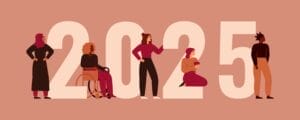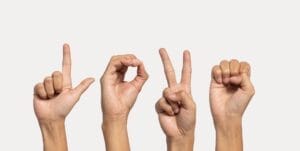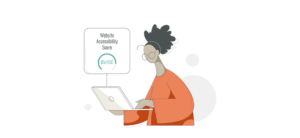The digital world is an ecosystem that shapes, reflects, and often amplifies the organization of our everyday lives. But for many, this essential world remains partially or entirely inaccessible, creating barriers where there should be connections. When websites fail to be accessible, they enforce isolation over inclusion, hinder independence, and can significantly impact the quality of life for people with disabilities. This blog post isn’t about code, regulations, or checklists. It’s about understanding the human impact of website accessibility and realizing the urgency to advocate and implement change.
Stories of Exclusion
- To truly appreciate the gravity of the issue, one must listen to the stories of those who’ve been excluded.
- Individuals who’ve lost job opportunities because an online application was not accessible.
- Parents who can’t use online educational resources to assist their children’s learning.
- A consumer who finds the task of purchasing clothing online daunting or impossible.
- A traveler who struggles to purchase airlines tickets online.
- A new driver who can not register to take their driver’s license test.
- A youngster who can not join their friends in playing online games.
- A hungry person who is challenged to order food to be delivered.
- A sick adult who can not message their doctor to send in a prescription.
- A parent who can not transfer funds to cover their child’s school fees.
These stories of exclusion underline personal frustrations, subdued ambitions, and dreams grounded due to inadequate website accessibility.
They remind us that at the heart of the conversation about digital accessibility aren’t just abstract users or faceless statistics—they are our colleagues, our friends, and our family members for whom the digital age has promised much but delivered less.

A Life Without Access
Imagine planning your day without the use of the web. Or, imagine it taking 5 times as long to use every website you use each day. For individuals with disabilities, this is not an exercise in imagination; it’s a daily reality in the digital space. For those with visual impairments, a non-accessible website could mean the inability to pay bills online. For users with motor disabilities, it might translate into being unable to apply for a job due to un-navigable forms. This lack of access doesn’t simply cause inconvenience—it disrupts the continuity of life, fosters dependency, and limits opportunities to contribute to society.
Unseen Barriers
Non-accessible websites create unseen barriers that impinge upon the dignity and autonomy of individuals with disabilities. Visual elements without alternative text descriptions, complicated navigation that isn’t keyboard-friendly, or dynamic content without proper alerts are just a few examples of these barriers. These elements might seem trivial to the able-bodied, but they represent significant hurdles for the disability community. The result is a disparate digital divide that enforces the notion that some users’ needs are secondary or even unimportant.
Conclusion
By bringing the focus back to the human experience, we begin to acknowledge that website accessibility isn’t just a technical requirement—it’s a social imperative. It’s about reaffirming the principle that everyone has the right to access information, services, and opportunities equally. Therefore, our commitment to improving website accessibility becomes not just a professional responsibility, but a moral one too, to confront and dismantle the digital barriers that segregate and limit.














